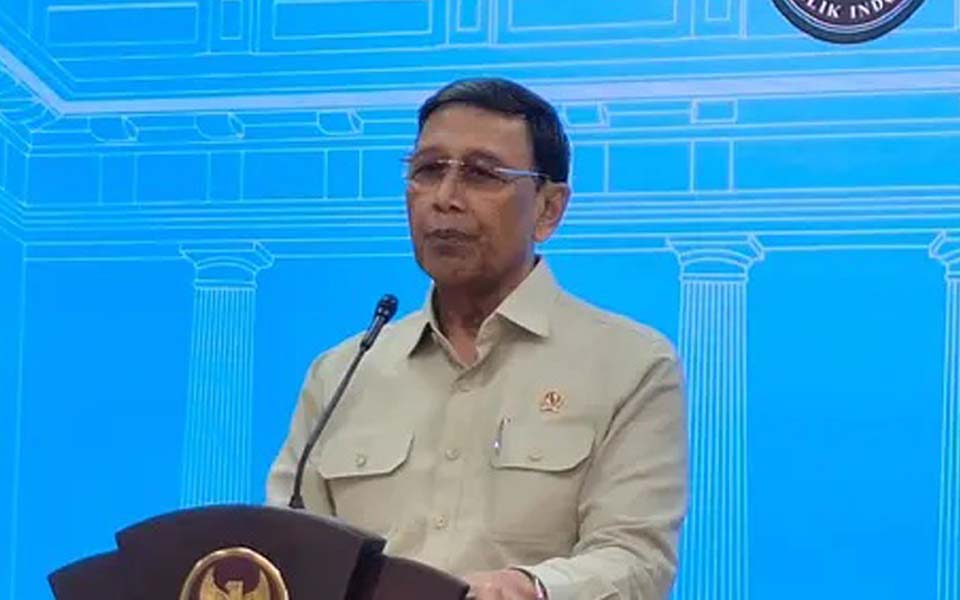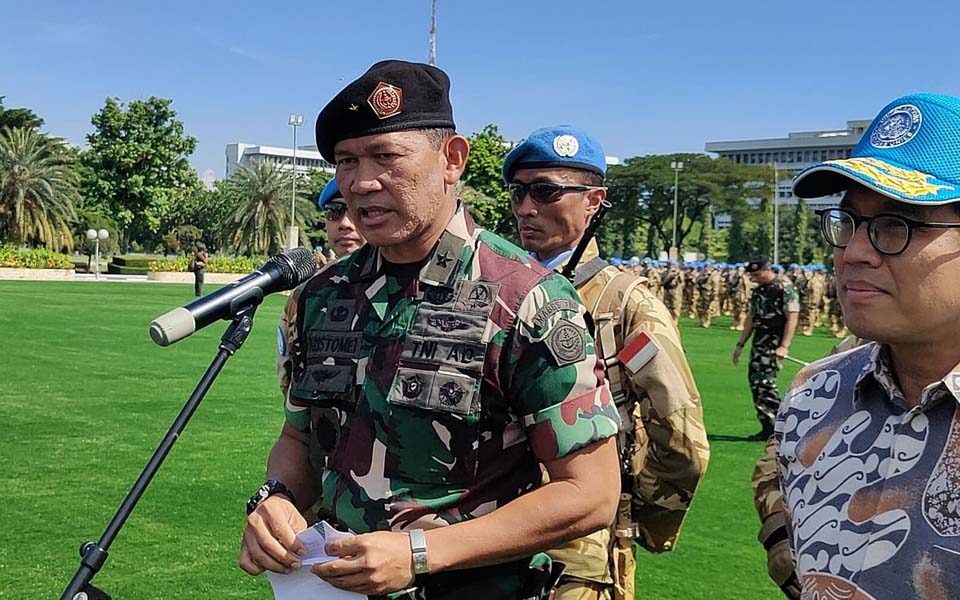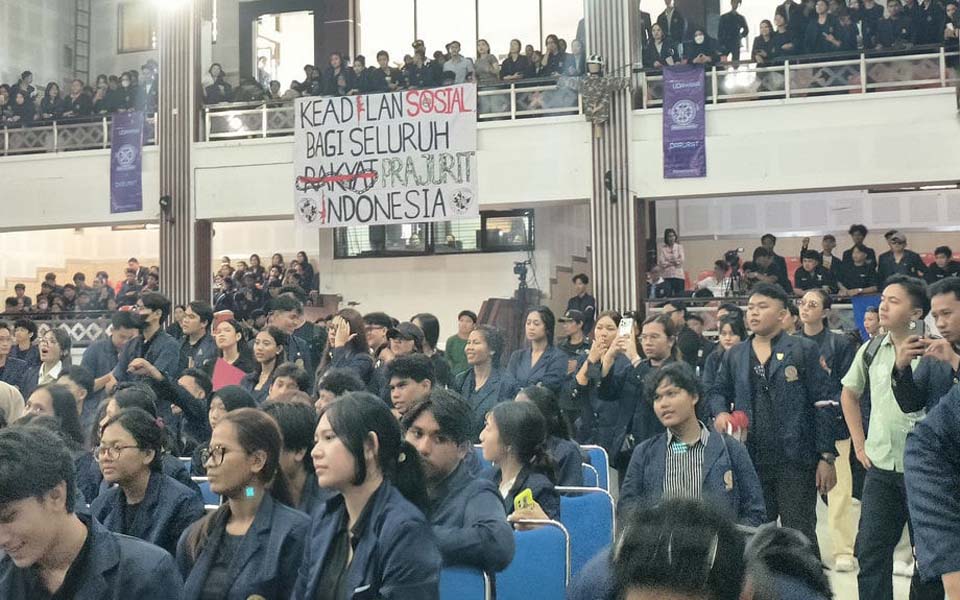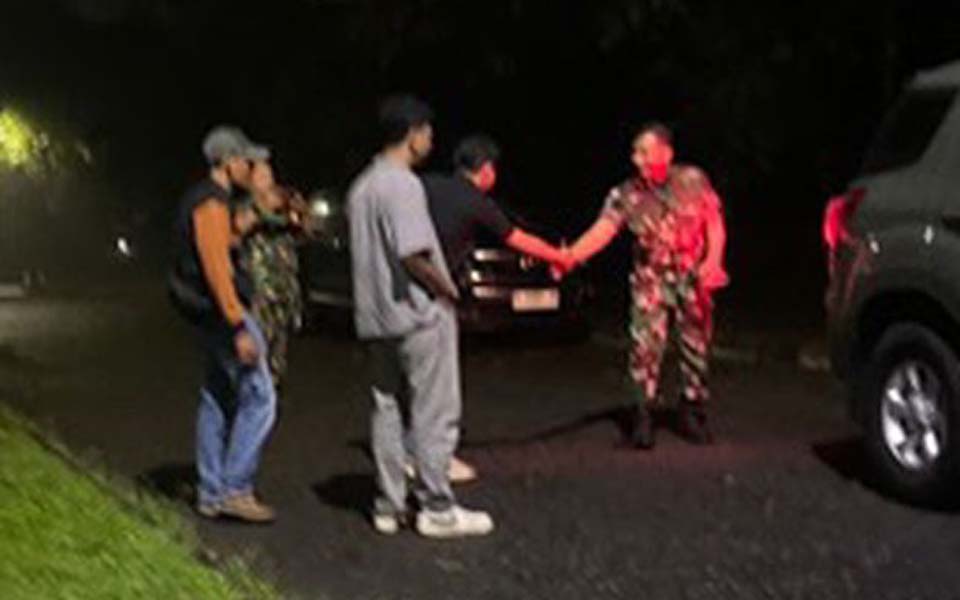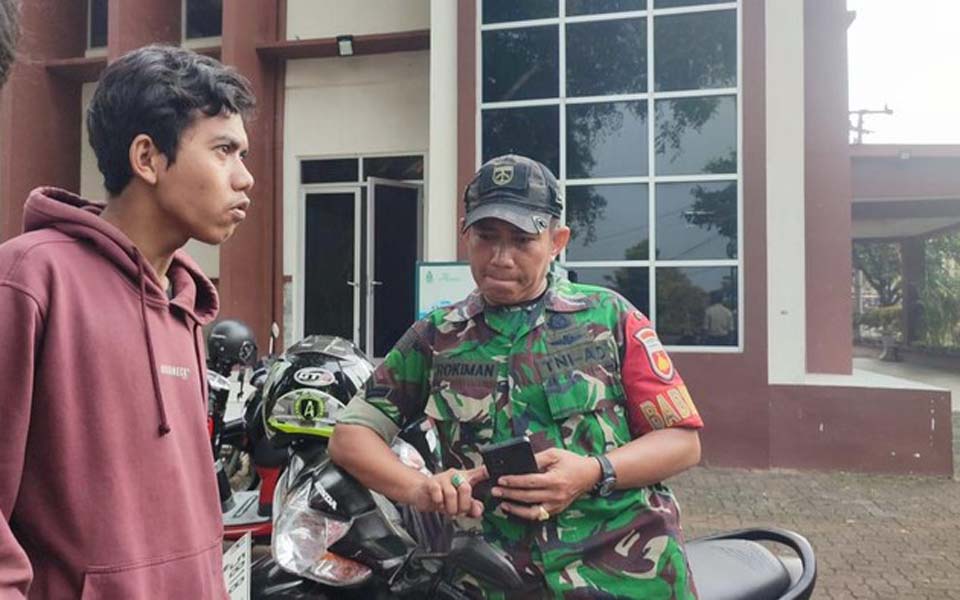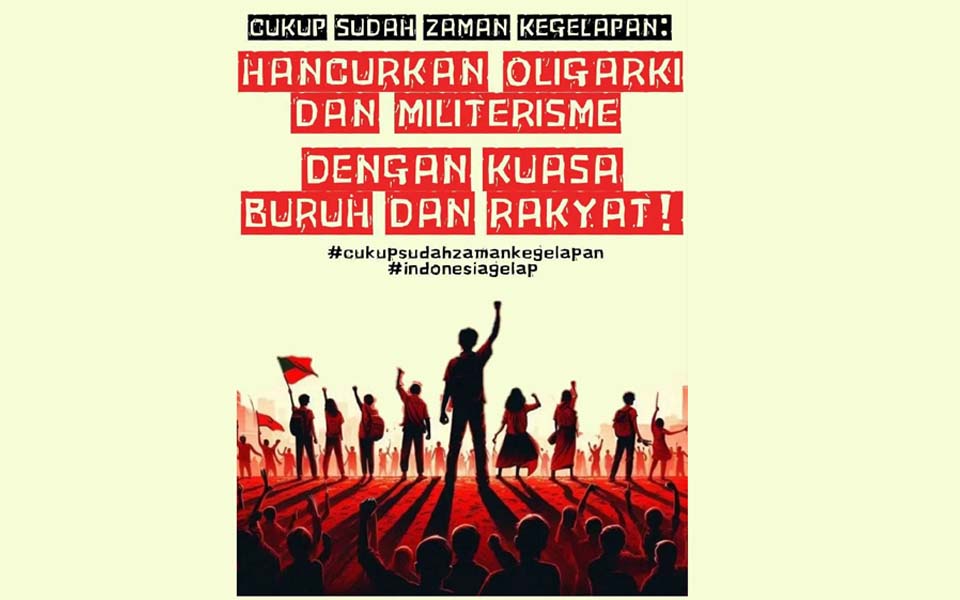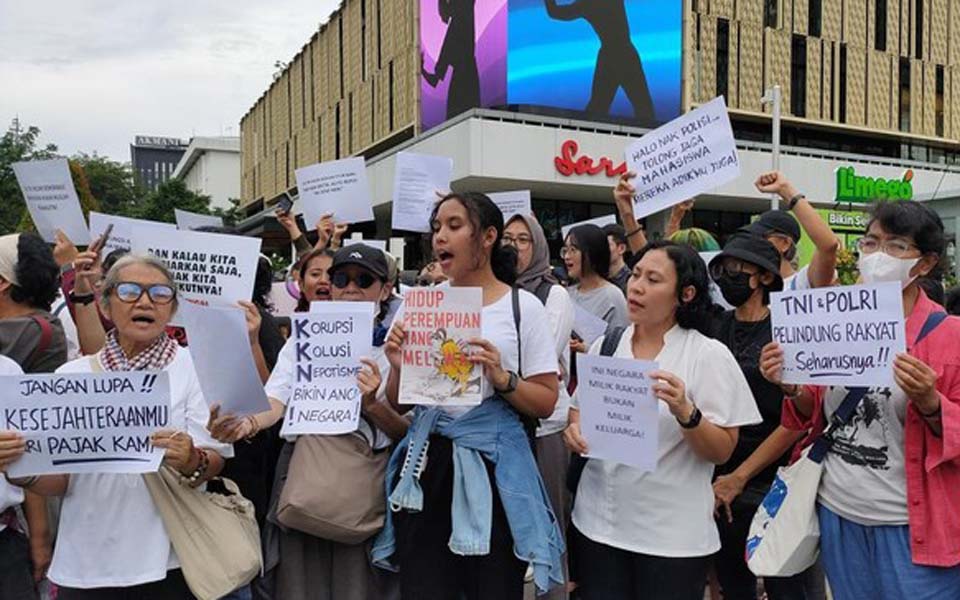Ihsanuddin, Jakarta – Amnesty International is urging TNI (Armed Forces) chief Air Marshal Hadi Tjahjanto and Army Chief of Staff (KASD) Lieutenant General Mulyono to ignore provocative calls by former TNI chief retired General Gatot Nurmantyo and others in the political elite to hold public screenings of the film G30S/PKI on September 30 this year.
Amnesty International Indonesia director Usman Hamid says that the choice of whether to watch the film The Betrayal of the 30 September Movement/Indonesian Communist Party (Pengkhianatan G30S/PKI) is up to the individual. The TNI should not be forced into taking actions that are prone to misuse by certain political elite groups.
“Making an issue over the position of the TNI commander and KSAD by giving the impression that they are afraid or saying officers are cowards if they don’t order public screenings of the G30S/PKI film is an attempt to politicise the TNI”, said Hamid in a written statement on Friday September 28.
“TNI officers, and also the public cannot be forced to accept one version of history. They already understand that there are different versions of history. Each person has the right to decide if they want to watch the G30S/PKI film or refer to alternative films or literature”, added Hamid.
Hamid said that in September last year, when Nurmantyo held the post of TNI commander, there were social groups which were influenced by the film and as a result attacked and vandalised the Indonesian Legal Aid Foundation (YLBHI) offices in Jakarta.
“This [the attack] was intimidation against human rights defenders. The brutality of the perpetrators overwhelmed security personnel, both members of Polri [Indonesian police] as well as TNI officers who tried to secure [the situation]. Several police officers were even injured. But the perpetrators have never been prosecuted”, explained Hamid.
Hamid added that not long after Nurmantyo made the recent anti-PKI statements, on September 27 nationalist groups forcibly broke up two Thursday actions (Kamisan) in the East Java cities of Malang and Surabaya on the grounds that the demonstrations were linked to the PKI.
Hamid also noted that during the era of reformasi – the reform process that began in 1998 – the education minister during the presidency of BJ Habibie, Juwono Sudarsono, formed a special team to reevaluate all history books that taught the official version of the G30S/PKI affair.
The minister of information during the Habibie era, retired Lieutenant General Yunus Yosfiah also halted the requirement that the G30S/PKI film be aired by TV stations every September 30.
“This is evidence that the [official] history of the September 30, 1965 affair has already been reevaluated and revised by the government [itself]”, he said.
Hamid added that survey by Jakarta-based Saiful Mujani Research and Consulting (SMRC) in 2017 and 2018 found that 86 percent of people did not agree with claims that the PKI was being revived. Only 12 percent of respondents agreed with this.
So, he said, although the anti-PKI issue is actually not significant, it is being blown up in order to defend the interests of certain sections of the political elite.
This is being done in order to paint the victims and survivors of the 1965 anti-communist purge in a bad light and to silence activists, university lecturers and farmers who are fighting for their basic rights.
“For example, the farmer Budi Pego in Banyuwangi who was charged with and sentenced to jail for spreading communist ideology after protesting against a local gold mine operation. So this is a minor issue that is being exaggerated”, he said.
Two weeks ago, Nurmantyo issued a challenge to the TNI leadership via his Twitter account @Nurmantyo_Gatot to order public screenings of the G30S/PKI film.
Notes
In September 1998, the government dropped the requirement for all TV stations to broadcast the film “Pengkhianatan G30S/PKI” (The Betrayal of the September 30 Movement/Indonesian Communist Party), a dramatisation of the New Order’s version of the events surrounding the alleged communist coup in 1965. The film, one of the most effective pieces of propaganda produced by the Suharto dictatorship, had been a compulsory program for all stations every September 30 since its release in 1984.
[Translated by James Balowski. The original title of the article was TNI Diminta Abaikan Tantangan Gatot untuk Nobar G30S/PKI.]






